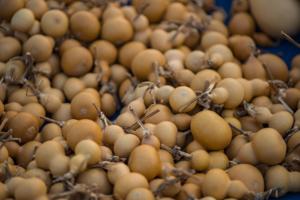Will Tomato Plants Produce More Than One Season?
If you're a fan of gardening and growing your own produce, you're probably well aware of the benefits of tomato plants. Not only are they relatively easy to grow, but they're also versatile and can be used in countless recipes. Whether you enjoy slicing them up for a sandwich or using them in a homemade pasta sauce, tomatoes are a staple in many households. But if you're wondering whether tomato plants will produce more than one season, the answer is yes – and in this article, we'll explore how and why.
The Basics of Tomato Plants
Before we dive into the specifics of whether or not tomato plants can produce more than one season, it's important to understand the basics of these plants. Tomato plants are technically classified as a fruit, but they're commonly referred to as a vegetable. They're typically grown as an annual plant, meaning they complete their life cycle in one growing season. However, that doesn't mean they can't produce more than one season.
Factors That Affect Tomato Plant Production
While tomato plants can produce more than one season, there are several factors that can affect their production. One of the most important factors is temperature. Tomatoes thrive in warm, sunny weather and don't do well in extreme temperatures. If the temperature is too hot or too cold, tomato plants may not produce as well or may not produce at all.
Another factor that can affect tomato plant production is soil quality. Tomatoes require well-draining soil that is rich in nutrients. If the soil is poor quality or lacking in nutrients, the plants may not produce as well. Additionally, tomato plants need adequate water and sunlight to produce fruit. If they're not receiving enough of either, their production may suffer.
Can Tomato Plants Produce More Than One Season?
The short answer is yes – tomato plants can produce more than one season. However, it's important to note that this typically requires some extra effort on the part of the gardener. In order to get tomato plants to produce more than one season, they need to be treated as a perennial rather than an annual.
This means that after the first season's harvest is complete, the plant should be pruned back to its main stem and any dead branches removed. The plant should then be moved indoors (if possible) or covered with a protective layer to shield it from the cold. This will allow the plant to enter a dormant state, essentially "hibernating" until the next growing season.
Benefits of Tomato Plant Production Year-Round
While it may require extra work, there are several benefits to getting tomato plants to produce more than one season. For one, it means that you'll have a consistent supply of fresh tomatoes year-round, rather than only during the growing season. This can be especially beneficial for those who love cooking with tomatoes or who like to can their own tomato sauce.
In addition, treating tomato plants as perennials rather than annuals can save time and money. Rather than having to start over each growing season, you can simply maintain the same plant year after year. This can save money on seeds or seedlings and also save time on planting and growing.
Conclusion
In conclusion, tomato plants can produce more than one season if treated as perennials rather than annuals. While this may require extra effort on the part of the gardener, the benefits of year-round tomato plant production are worth it. By paying attention to factors such as temperature, soil quality, water, and sunlight, and properly pruning and protecting the plants during dormancy, it's possible to enjoy the delicious taste of homegrown tomatoes year-round.

 how many times do yo...
how many times do yo... how many planted tre...
how many planted tre... how many pine trees ...
how many pine trees ... how many pecan trees...
how many pecan trees... how many plants comp...
how many plants comp... how many plants can ...
how many plants can ... how many plants and ...
how many plants and ... how many pepper plan...
how many pepper plan...































